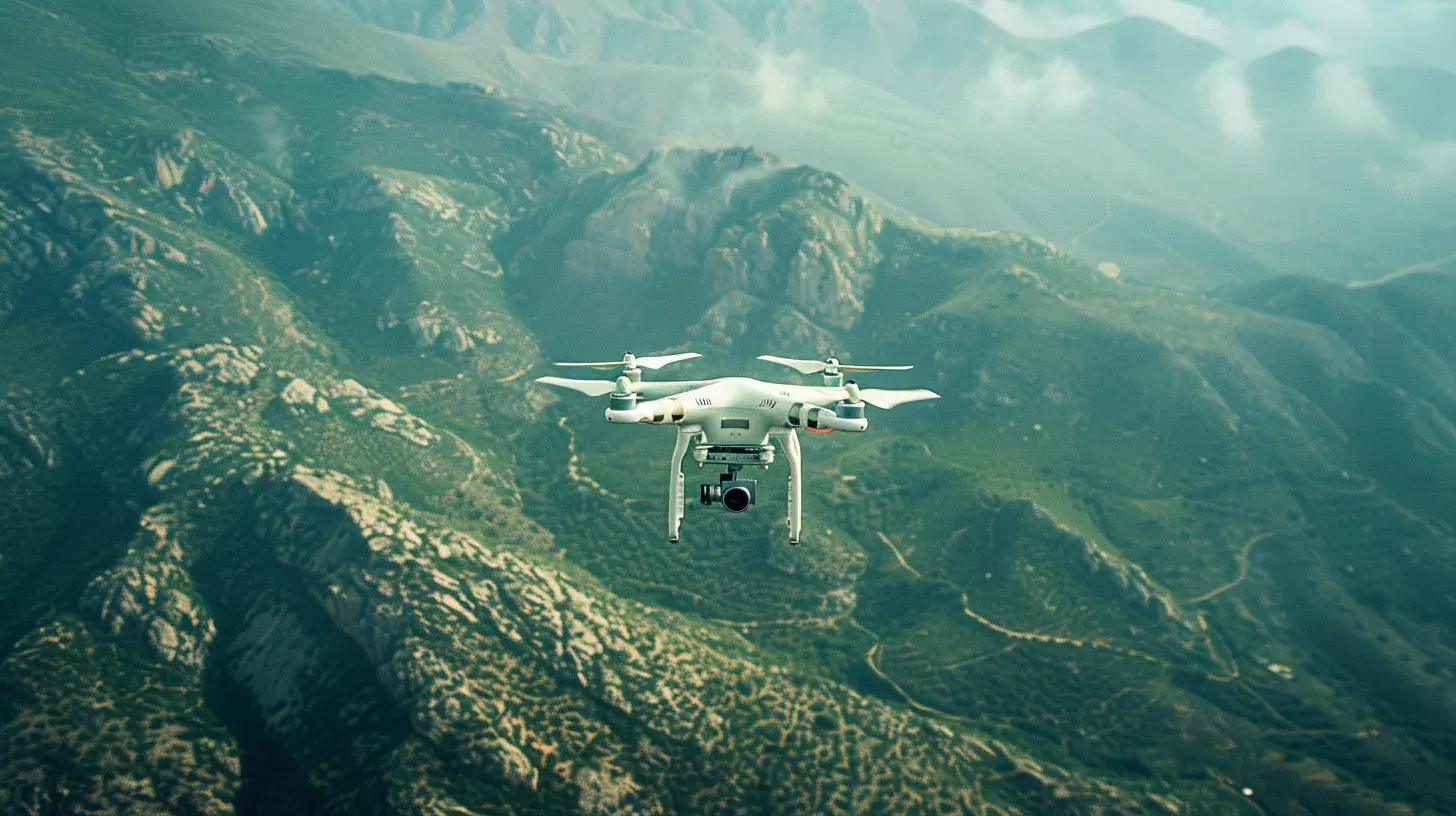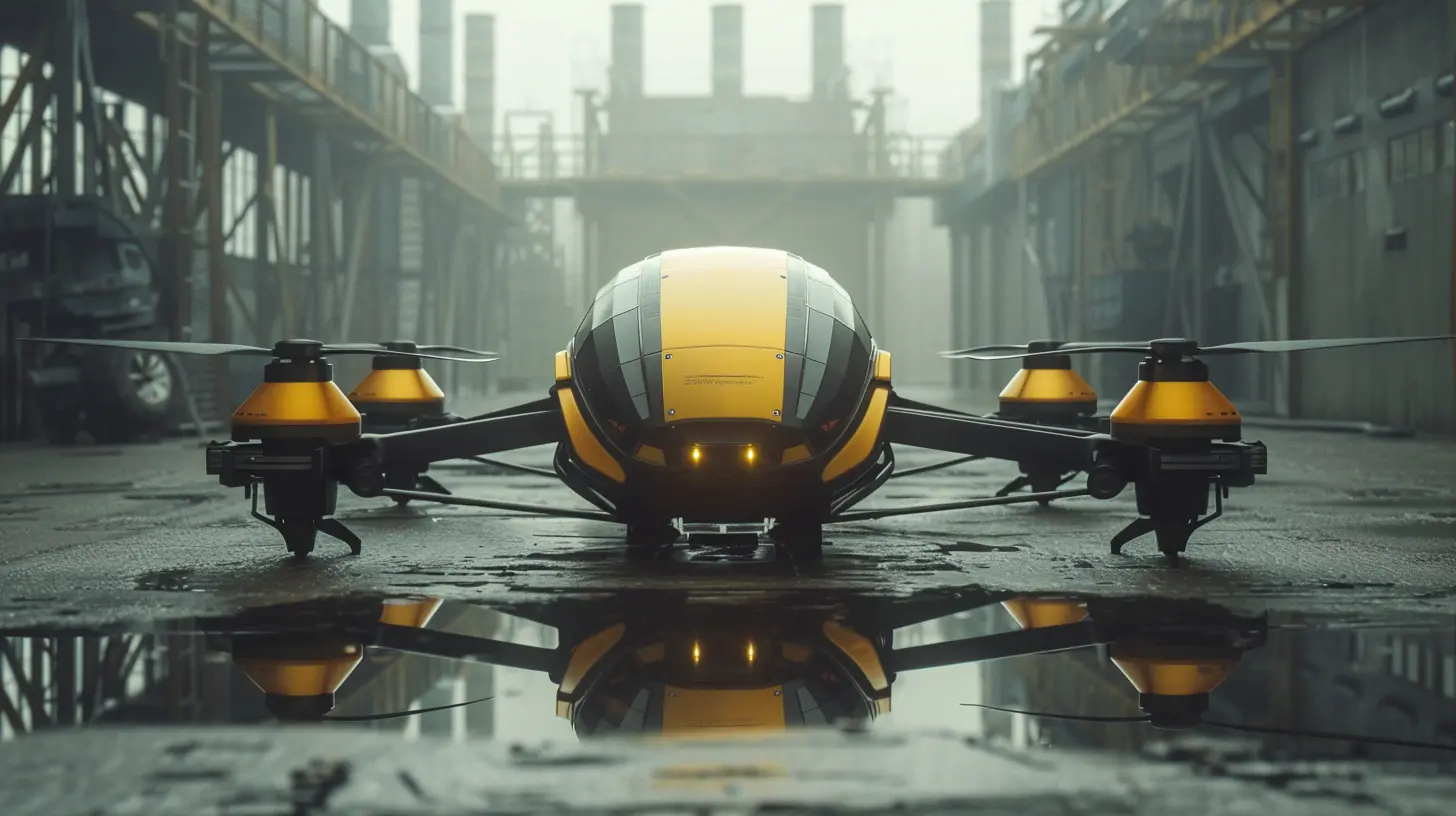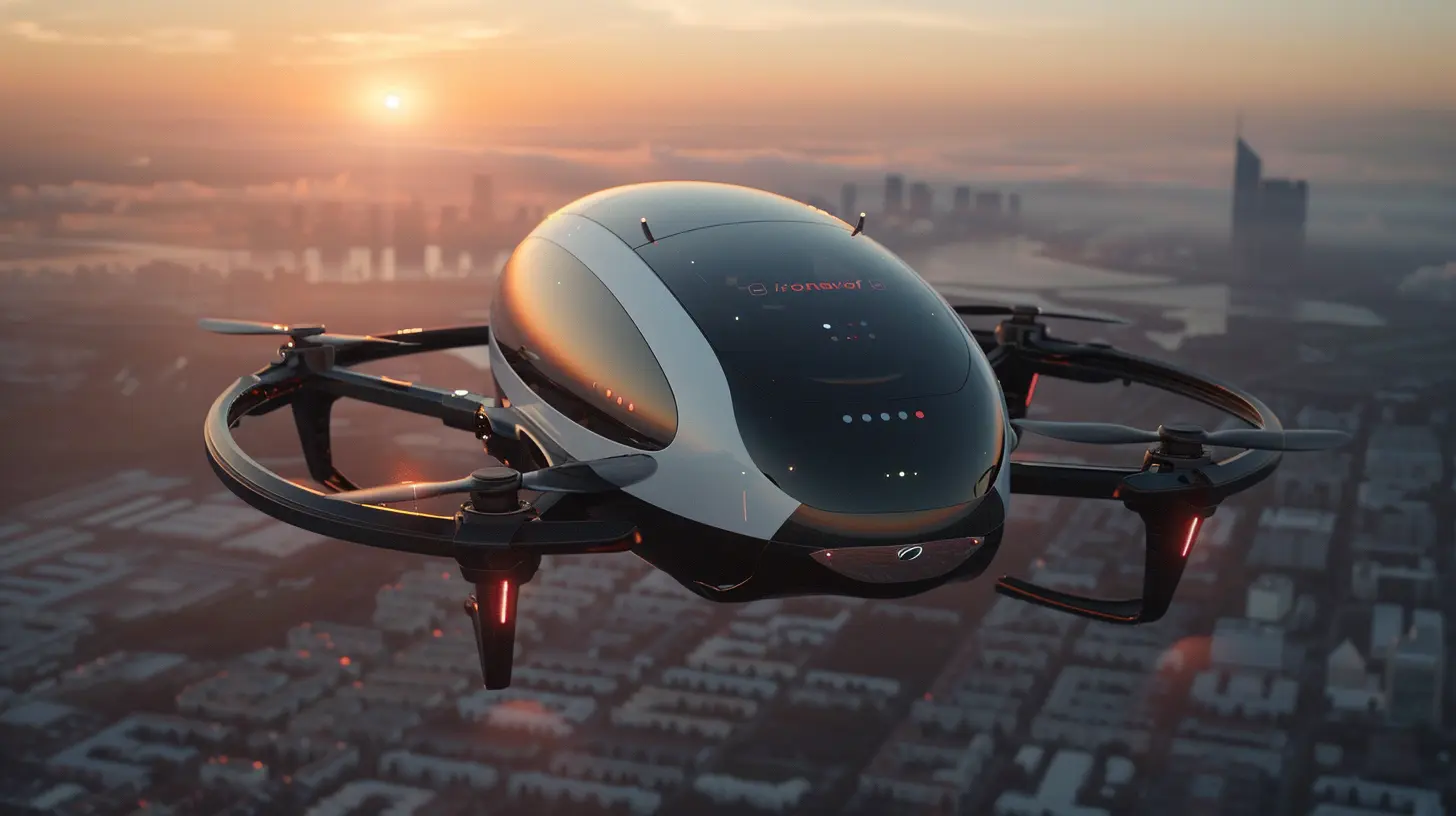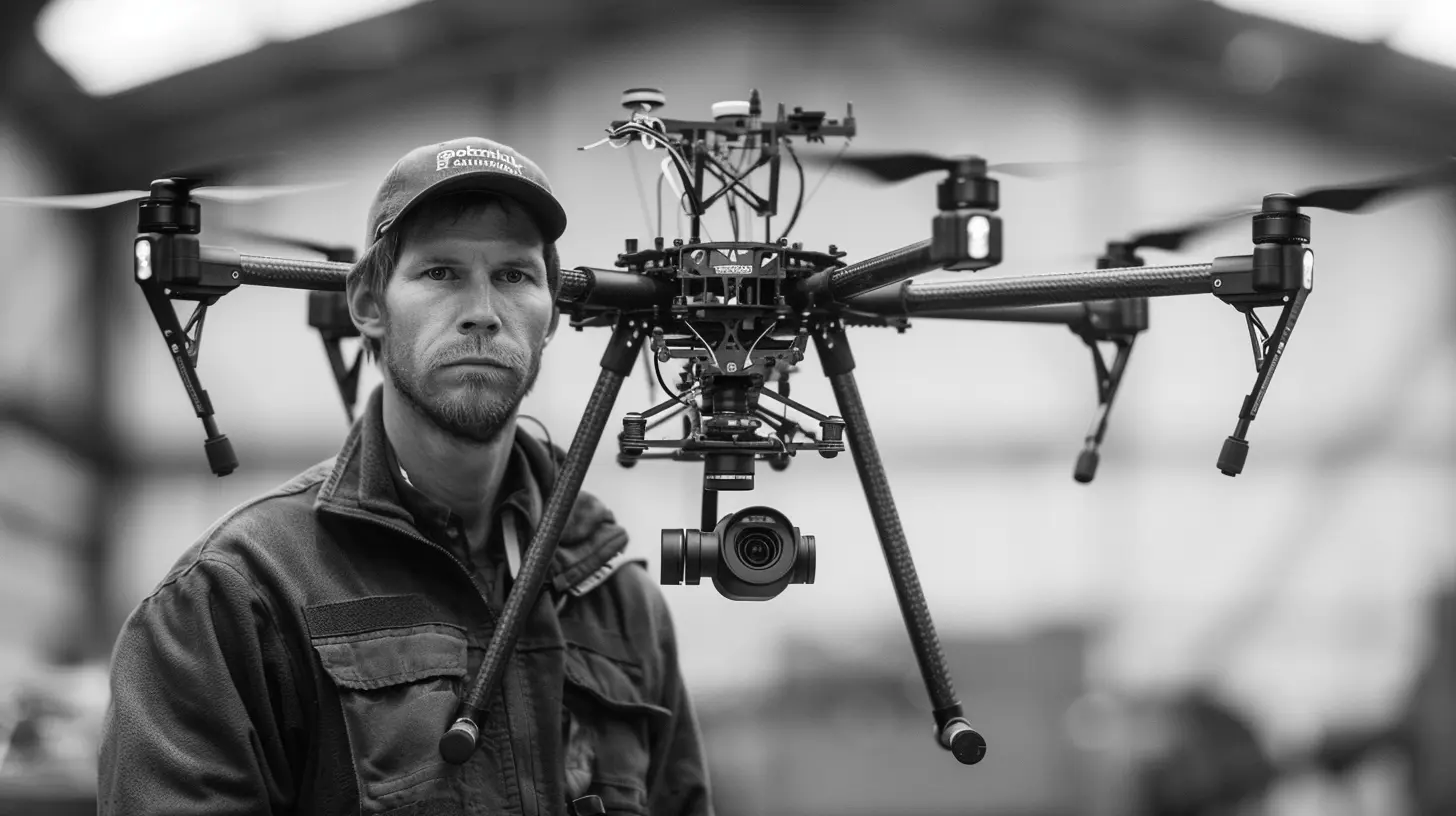The Rise of Autonomous Drones: What to Expect
19 May 2025
Drones have transformed from simple remote-controlled gadgets into intelligent, self-sustaining machines capable of completing tasks without human intervention. As artificial intelligence (AI) and machine learning (ML) evolve, autonomous drones are becoming more than just futuristic concepts—they’re shaping industries, enhancing security, and revolutionizing logistics.
So, what does this rise of autonomous drones mean for the world? Let's dive into the possibilities, challenges, and future impact of these high-tech flying marvels.

What Are Autonomous Drones?
Autonomous drones, unlike traditional ones that require a pilot, operate independently using advanced AI, computer vision, and real-time data analysis. They rely on sophisticated sensors and GPS to navigate, making decisions without direct human control.These drones are already being tested for various applications, from package deliveries to search and rescue missions. The possibilities seem endless.

The Technologies Powering Autonomous Drones
1. Artificial Intelligence (AI) and Machine Learning (ML)
AI and ML enable drones to recognize objects, analyze surroundings, and improve their decision-making skills over time. By processing massive amounts of data, they can find the most efficient flight paths, avoid obstacles, and adapt to real-world challenges.2. Computer Vision
Drones equipped with computer vision use cameras and sensors to interpret their environment. Think of it as giving drones a pair of eyes that help them "see" and understand the world around them, allowing for precision landing, object detection, and even facial recognition.3. GPS and Navigation Systems
Without GPS, autonomous drones wouldn’t be able to reach their destinations. Advanced satellite-based navigation allows them to fly accurately, even in complex or dynamic environments.4. Lidar and Radar Sensors
To avoid obstacles and map surroundings, drones use Lidar (Light Detection and Ranging) and radar technology. These sensors create highly accurate 3D maps, helping drones make real-time decisions during flight.
Industries Being Transformed by Autonomous Drones
1. E-commerce & Delivery Services
Companies like Amazon and UPS are already testing drone delivery systems. Imagine ordering a product online and having it dropped at your doorstep within minutes—no traffic, no human errors, just efficient, automated logistics.2. Agriculture
Farmers are leveraging drones for crop monitoring, precision spraying, and even livestock tracking. With AI-powered drones scanning fields, agricultural yield can be optimized, reducing waste and improving efficiency.3. Search and Rescue Missions
Rescue teams deploy drones to locate missing individuals in harsh terrains. Using thermal imaging and AI, these drones can scan vast areas faster and more effectively than humans, drastically improving survival chances.4. Military and Defense
Autonomous drones are playing a huge role in modern warfare. Their ability to conduct surveillance, transport supplies, and even engage in combat without putting human lives at risk makes them invaluable assets in defense strategies.5. Infrastructure Inspection
From monitoring bridges to inspecting power lines, drones eliminate the need for risky manual inspections. They provide high-resolution images, detect faults, and help prevent potential disasters.6. Wildlife Conservation
Autonomous drones are helping protect endangered species by tracking poaching activities and monitoring animal movements in real time. Conservationists can now collect data without disturbing wildlife habitats.
Challenges and Concerns Surrounding Autonomous Drones
1. Regulatory Uncertainties
Governments are still figuring out how to regulate autonomous drones. Issues like air traffic management, privacy concerns, and liability in case of accidents need to be addressed before widespread adoption.2. Ethical Dilemmas
Should AI-controlled drones be allowed to make life-or-death decisions in military contexts? The moral implications of autonomous drone warfare remain a hot topic of debate.3. Security Risks
With increasing autonomy, drones become vulnerable to hacking and malicious activities. Cybersecurity measures must be in place to prevent drones from being exploited for illegal purposes.4. Public Acceptance
Not everyone is comfortable with the idea of drones flying overhead 24/7. Privacy concerns and noise pollution could create pushback from communities hesitant to embrace this technology.The Future of Autonomous Drones
So, where is all this headed? The future of autonomous drones looks promising, and here’s why:- Full Automation in Delivery Services – We may soon see drones handling everything from grocery runs to emergency medical deliveries.
- AI-Driven Traffic Management – Automated drone corridors could become part of smart cities, reducing congestion and streamlining transportation.
- Improved Battery Technology – Enhanced power sources and wireless charging pads could allow drones to stay airborne much longer.
- More Collaborative AI Systems – Drones could work together in swarms, accomplishing complex tasks like fighting wildfires or building structures.
Final Thoughts
Autonomous drones are no longer just a sci-fi dream—they’re here, and they’re changing the way we live, work, and interact with technology. While challenges remain, the potential for innovation and progress is undeniable.As technology advances, we must find ways to balance convenience, security, and ethical concerns. Whether delivering pizzas or saving lives in disaster zones, these flying robots are on track to become an integral part of our future.
all images in this post were generated using AI tools
Category:
DronesAuthor:

Adeline Taylor
Discussion
rate this article
3 comments
Sara Barlow
This is an exciting topic! While the potential of autonomous drones is fascinating, it’s essential to consider the ethical implications and ensure responsible innovation for all.
June 5, 2025 at 1:04 PM

Adeline Taylor
Thank you for your insightful comment! Balancing innovation with ethical considerations is indeed crucial as we explore the future of autonomous drones.
Vesper Hines
Autonomous drones: the only flying machines that can ignore your ‘dad jokes’ from up high! Expect them to deliver snacks and dodgy puns, all while avoiding your cat’s laser pointer. Future's looking bright!
May 29, 2025 at 3:40 AM

Adeline Taylor
Thanks for the fun comment! Autonomous drones certainly have a bright future ahead, and who knows? They might just deliver the perfect punchline along with those snacks!
Levi McLain
Autonomous drones are redefining industries with enhanced efficiency and safety. As regulations evolve, their integration will unlock new possibilities, from delivery services to disaster response.
May 19, 2025 at 4:51 AM

Adeline Taylor
Thank you for your insightful comment! Indeed, the evolving regulations and capabilities of autonomous drones will significantly transform various sectors, enhancing efficiency and safety across the board.



